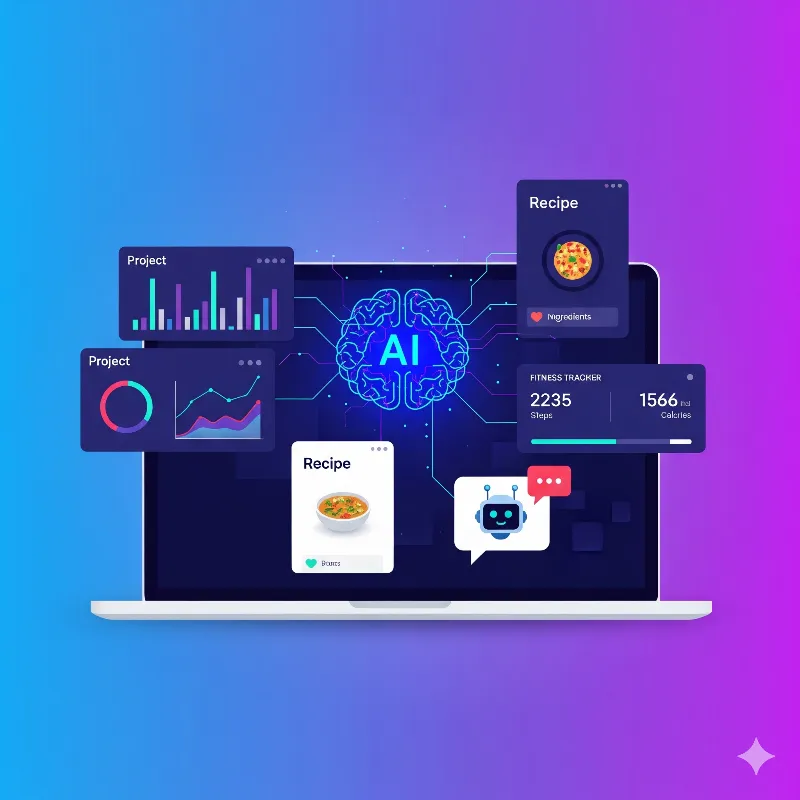Quantum Computing: The Next Frontier After AI
Quantum computing has moved far beyond the pages of science fiction. Today, it represents a technological revolution that could potentially outperform artificial intelligence in reshaping industries and solving problems that were once thought impossible. From optimizing global logistics networks to accelerating breakthroughs in drug discovery, quantum computers are positioning themselves as the next major leap in computational innovation.
At its core, quantum computing differs fundamentally from classical computing. Traditional computers rely on bits, which can exist in only one state at a time: either 0 or 1. In contrast, quantum computers use qubits, which can exist in multiple states simultaneously through a phenomenon known as superposition. This allows quantum machines to perform certain calculations exponentially faster than even the most powerful classical supercomputers. Problems that would require thousands of years to solve on traditional systems could be completed in mere minutes or seconds on a quantum computer.
Unlike classical computers, quantum computers are not limited by linear processing. Instead, they can explore many possibilities simultaneously. This parallelism opens the door to solving highly complex problems that classical computers simply cannot handle, from large-scale simulations to advanced optimization challenges.
How Quantum Computing Works
Beyond superposition, another key principle of quantum computing is entanglement. When qubits become entangled, the state of one qubit instantly affects the state of another, no matter the distance between them. This correlation allows quantum systems to coordinate computations in ways impossible for classical systems.
Quantum algorithms exploit these unique properties. For example, Shor’s algorithm allows quantum computers to factor large numbers exponentially faster than classical methods, posing both a challenge and an opportunity for cybersecurity. Similarly, Grover’s algorithm can search unstructured databases more efficiently, opening new possibilities in data analysis and artificial intelligence applications.
Moreover, quantum computers rely on quantum gates to manipulate qubits. These gates function differently from classical logic gates, enabling operations that can maintain qubits in superposition and entanglement. Understanding these mechanisms is crucial for developers and researchers aiming to leverage quantum systems effectively.
Industries Poised for a Quantum Leap
Several industries are already exploring how quantum computing can provide a competitive edge:
Pharmaceuticals: Quantum simulations allow researchers to model molecular structures and chemical reactions with unprecedented accuracy. This can drastically reduce the time and cost of drug development, potentially bringing life-saving medications to market faster.
Logistics & Supply Chain: Quantum algorithms can optimize routing, inventory management, and resource allocation on a scale that classical computers cannot match. Companies could save millions of dollars while reducing delivery times and carbon emissions.
Cryptography & Security: Quantum computing has the potential to break many traditional encryption methods, prompting the development of quantum-resistant security protocols. At the same time, it can enable next-generation secure communication systems that are virtually unhackable.
Finance: Quantum models can simulate complex financial systems and optimize trading strategies. This could allow institutions to better manage risk, forecast market behavior, and improve algorithmic trading performance.
Energy & Material Science: Quantum simulations can predict material properties and chemical reactions more accurately, leading to innovations in renewable energy, battery technology, and industrial materials.
Major tech companies like IBM, Google, and startups such as Rigetti are actively building early-stage quantum processors. Research labs are experimenting with practical applications, proving that quantum computing is slowly moving from theory into practice.
Challenges Ahead
Despite the excitement, quantum computing is still in its infancy. Developing scalable, reliable quantum systems presents several challenges:
Error correction: Qubits are highly sensitive to environmental factors, which can introduce errors in computations. Error correction protocols are complex and resource-intensive.
Hardware stability: Maintaining qubit coherence for long computations is difficult. Even small temperature fluctuations or electromagnetic interference can disrupt operations.
Cost and accessibility: Quantum computers are extremely expensive and require specialized environments, limiting their availability to most researchers and businesses.
Experts predict that commercially viable quantum computers could be 5–10 years away. However, early implementations in research, logistics, finance, and material science are already demonstrating significant potential. Cloud-based quantum platforms from companies like IBM and Microsoft allow developers to experiment with quantum algorithms even without owning physical hardware.
Why Developers and Tech Enthusiasts Should Care
For developers, data scientists, and tech innovators, quantum computing represents the next frontier of innovation. Learning quantum algorithms, understanding qubit behavior, and experimenting with cloud-based quantum platforms can position you at the forefront of this revolutionary wave.
Quantum computing will not replace classical computing but complement it. Certain problems, like simulating molecular interactions or optimizing massive supply chains, are inherently more suited for quantum solutions. Understanding when and where to use quantum approaches will be a valuable skill for the next generation of technologists.
In the coming decade, quantum computing won’t just change the way we process information — it will fundamentally reshape industries, solve previously impossible problems, and redefine technological progress. By staying informed and engaged with this technology, professionals can help shape a future where quantum computing drives innovation across multiple sectors.
The era of quantum computing is just beginning, and the possibilities are limitless. From transforming healthcare and energy to revolutionizing finance and security, the impact of quantum computing will be felt across the global economy, promising a future where computational barriers are pushed beyond imagination.

